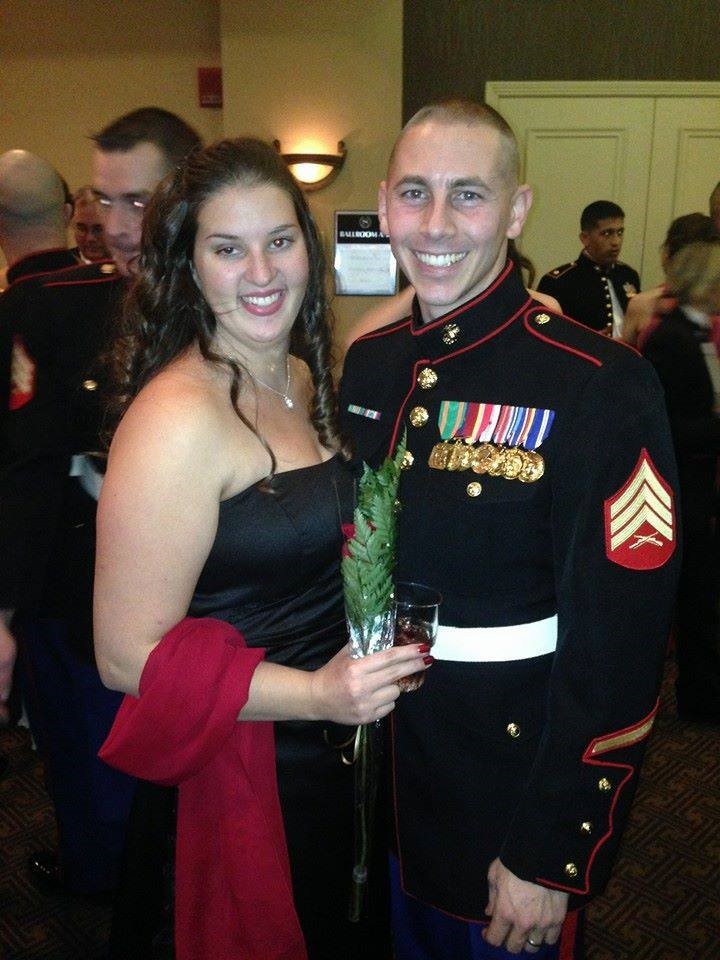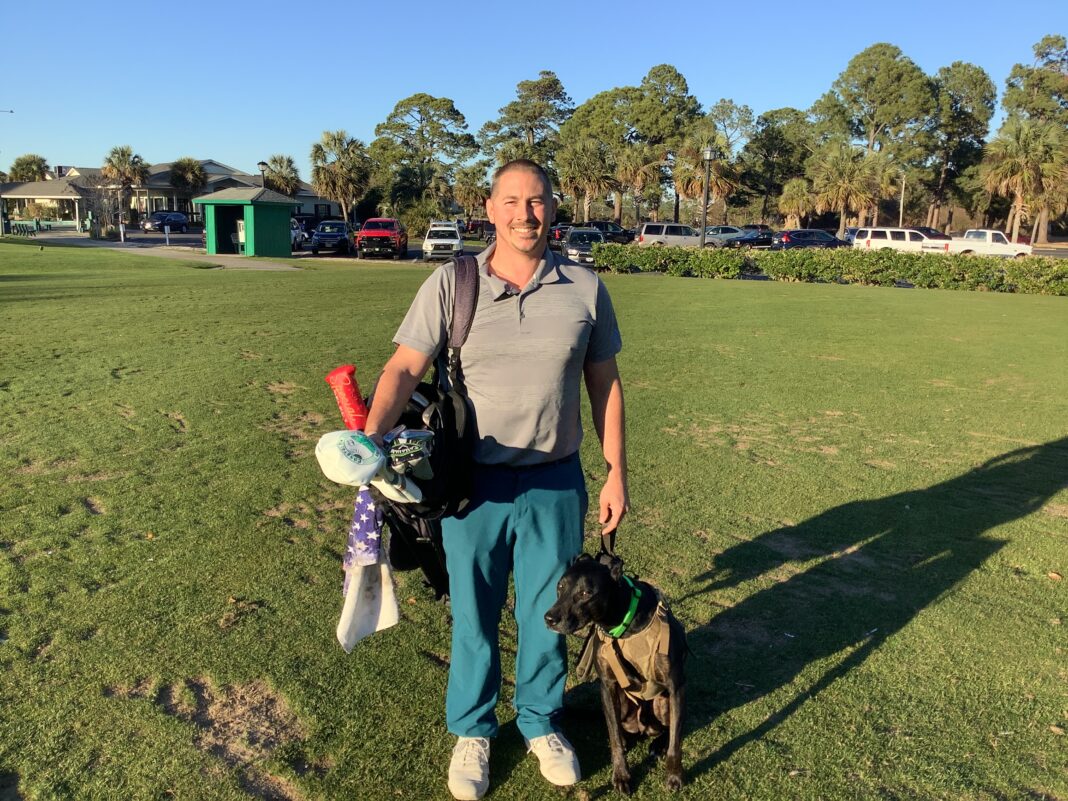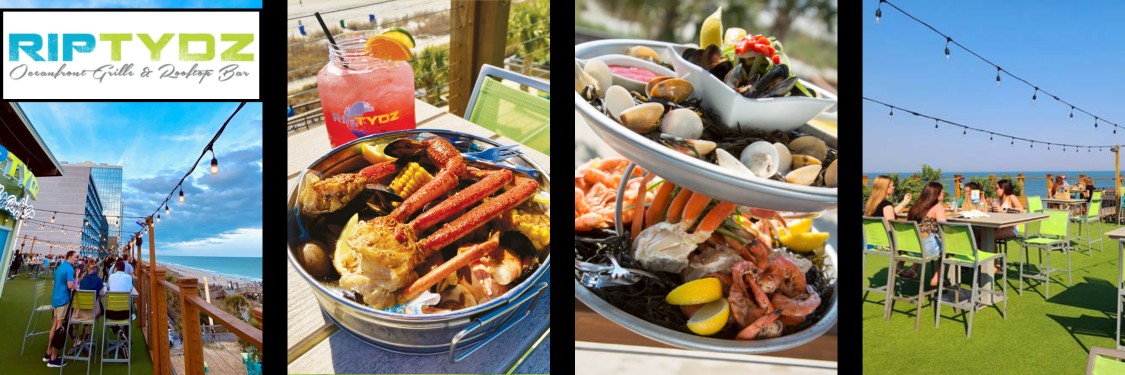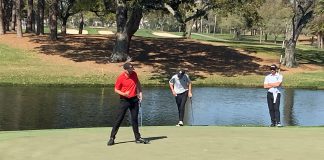Eric Fisher is getting into the golf business to help himself, and help others.
Specifically, other veterans who might be going through the same travails that he is leaning on the game of golf to get through.
Fisher is a recent graduate of Coastal Carolina University’s PGA Golf Management Program, and his primary ambition is to work at an area course and teach fellow veterans the game, both individually and through free or inexpensive veterans programs that are available to them.
That includes the PGA of America’s PGA Hope, which has programming through Project Golf at Barefoot Resort, and the On Course Foundation, which has helped Fisher get to this point in his burgeoning golf career.
“I want to do more than just grow the sport of golf. I kind of want to show how golf can help you not just physically but mentally,” Fisher said. “. . . You don’t have to be the guy out there shooting 5, 6, 10 under par, you just need to go out there and have a good time. That’s what it’s about, it’s about having that good time and being able to share it with that person with you.”
Fisher has been using the game to help him overcome the effects of brain trauma caused primarily by an exploding mortar shell, and the depression, anxiety, migraines and PTSD that he carried with him following nearly 10 years in the Marines.
Golf has been a benefit, both the inherent traits of the game and camaraderie that it offers.
“Probably the biggest part of golf is the mental game. For me, as somebody with PTSD and anxiety, it kind of forces you to kind of step out of everything else,” he said. “Because when you’re swinging you can’t have 7,000 swing thoughts. You’ve kind of got to just have that one thing you focus on or even nothing.
“. . . People don’t realize how important muscle relaxation and breathing are when you’re playing golf, and that’s something that helps big time with anxiety and PTSD.”
Finding the game through adversity
Fisher, 36, is a native of Toms River, N.J., who joined the Marines after attending a community college. Both of his grandfathers and an uncle are veterans of three different military branches.
He specialized in avionics – electronic communications and navigation systems on planes.
He was knocked down by a mortar shell and suffered traumatic brain injury and back issues. That was in addition to the times Fisher, who was a multisport athlete growing up, was knocked unconscious during Marine training and in his hobby of martial arts, for which he was an instructor while in the Marines.
He was medically discharged as a staff sergeant in May 2016 due to the brain injuries.
But not before he discovered the game of golf as a patient and outpatient from 2014-2016 at the Walter Reed National Military Medical Center. Among the recreational and occupational therapy options were golf clinics. He wasn’t comfortable in crowds due to his injuries, but enjoyed the outdoors and immediately took to the game.
“I kind of fell in love with the sport of golf and the ability to continue to be competitive,” Fisher said. “I was like, ‘I want to be able to do this, I want to find a way to be able to bring this to other veterans or even just other people in general.’ And finding out that growing the sport is one of the biggest things for the PGA – they say grow the sport, that’s their main goal.”
After returning to New Jersey and taking college business classes, he learned he could attend college to pursue a career in golf, and found CCU’s PGM program.
“My wife wanted to live by the beach, basically, because we grew up at the beach,” Fisher said. “She said, ‘I’ll move, but we have to move here.’ Pretty much there was no real alternative, it was like we’re going to move to Myrtle Beach and that’s it.”
Fisher’s wife Breanna is a coach at Thomas Gymnastics At The Beach, and they have daughters ages 10 and 7.
Shawn Whitmore, an Army veteran who is the On Course Foundation’s national program director, happens to live in Myrtle Beach, and Fisher met him shortly after enrolling at CCU through their children’s gymnastics classes.
Whitmore quickly got him involved in OCF and some of its golf events that they’ve attended together on the road, including a Veterans Day event in Beaufort where there were a lot of vets.
“I’ve met a lot of other veterans . . . like Vietnam era veterans that I’ve met and I’ve gotten to play with and talk to, and having that ability to do that and share stories and talk about just life in general and how they handled things after their time in the military [is valuable],” Fisher said.
Fisher worked at CCU’s Hackler Course during college and has been given instruction by several of CCU’s PGM instructors, including director of player development Matt Roberts, as well as some pros at the Hackler Course. He also has an instructor in Florida that Whitmore introduced him to who specializes in working with veterans.
Fisher, who can always be found with his service dog sidekick Oakley – after the sunglass company whose product Fisher is partial to in part because it is a consistent supporter of the military and veterans – still needs to pass the PGA Player Ability Test in order to progress toward becoming a full Class A member.
The PAT requires a 36-hole score within 15 shots of the course rating. He has attempted it several times, but he’s impeded by a balky back and balance issues caused by his brain injuries. He has a few more years to record the necessary scores.

The On Course Foundation’s role
The OCF helps wounded, injured and sick military veterans recover, using golf to facilitate their transitions back into society. It does so with access to instruction as well as education toward careers in golf and full-time job placements.
It has offices in Orlando and London, has more than 2,000 members, and was founded in 2010 by John Simpson, a former agent to 17 major tournament winners including Nick Faldo who would regularly visit injured service members.
The OCF’s marquee event is the annual Simpson Cup, which features teams of 13 wounded U.S. veterans against their counterparts in the United Kingdom.
It has a strong footing on the Grand Strand, led by Whitmore.
There are roughly 20 OCF members in the area. Many are graduates of the Golf Academy of America’s Myrtle Beach campus, which catered to veterans but closed in 2018.
The organization conducts single-day golf outings in Myrtle Beach utilizing Founders Group International courses as well as River Oaks Golf Club and Barefoot Resort courses.
The local VFW regularly holds golf events that are extended to OCF members and other veterans who wish to participate.
The first Simpson Club qualifier was held at Barefoot Resort in February 2019.
“For me the biggest thing has been 1, Shawn in general and the camaraderie with him and some of the other service members I’ve met through there, and the help he’s given me, like getting a teaching pro in Florida,” Fisher said. “I know there are certain areas, without having On Course and Shawn, I wouldn’t be in the place where I’m at. There are certain things in my game that wouldn’t be where they are, and even in life there are a lot of things he’s helped me with. They’re not just there for golf, they’re there if you need them.”
Several OCF members from Myrtle Beach, including Whitmore, will be attending the National Retired Military Golf Classic from May 30 to June 3 on the Strand. He hopes to grow OCF membership at the tournament considering there are expected to be more than 500 veterans participating.
The On Course Foundation is in the midst of a fundraising campaign during May, which is National Military Appreciation Month.









